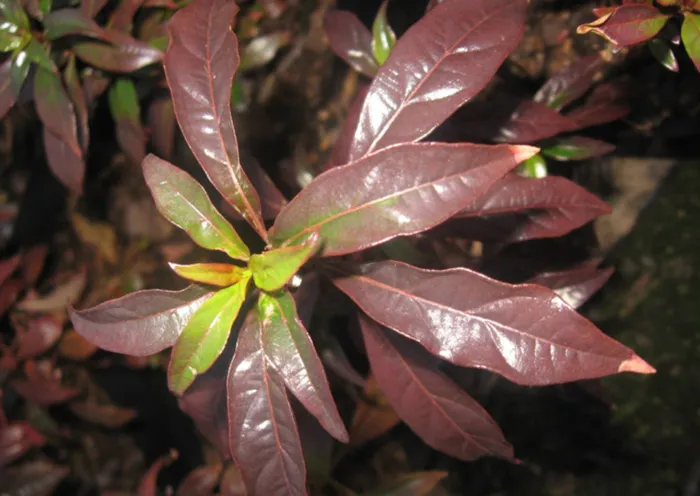White ironwood, lavender trees in spotlight

Heteropyxis natalensis, the lavender tree. Heteropyxis natalensis, the lavender tree.
“Trees have always had a special magic, calling us to acknowledge a deep interconnectedness. Rooted in the earth and reaching towards the sky, not only are they a connector between two worlds, they unify them.” – Barry Patterson
As trees were being mercilessly lashed by savage winds in my Betty’s Bay garden this winter, I marvelled at their tenacity and robustness. But I was even more amazed, recently, to learn that the seed of the North American Sitka spruce, though weighing a mere 1/13 000th of an ounce, can develop into a giant of 300 tons.
This year the white ironwood (Vepris lanceolata) and lavender trees (Heteropyxis species) are under the spotlight.
The Vepris is quite widespread, being found along the Cape coast right up to Kenya. It is an evergreen which can be used as a decorative garden specimen in sun or shade and grows up to 30m. I planted one some years ago in a sheltered spot with the aim of luring butterflies, for four species of swallowtail butterfly larvae feed on its lemon-scented leaves. Birds relish its fruit and seeds, but sadly, the porcupine likes to munch on its bark. So far mine has escaped the notice of the porcupine and done well despite being in relatively poor soil.
There are only four species of lavender trees, three of which occur in South Africa, but none in the Western Cape. These are smallish trees with aromatic leaves and are suitable as container plants. Their seeds germinate easily.
Having already planted these species in the past, this year I chose a mountain cypress (Widdringtonia nodiflora) instead. It is the only cypress found in this country to be widely distributed, spreading from the south-western Cape to as far north as tropical Africa. A small tree of up to 9m, it bears cones as fruit.
As its common name suggests, it generally grows along mountain ranges, so I shall be interested to see how mine fares in my coastal garden at a lower altitude.
Cape Argus